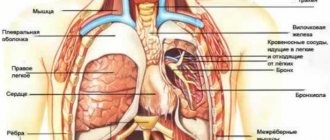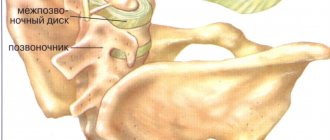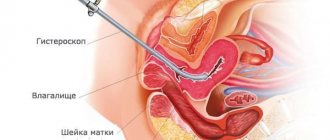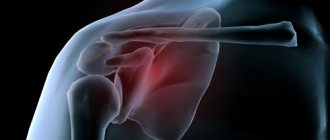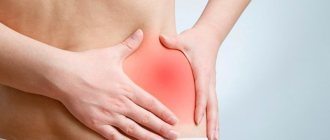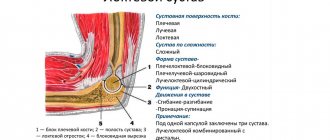March 30, 2021 Normally, urination should not cause any discomfort or pain. Otherwise, this indicates the presence of problems with the genitourinary organs. Common causes include diseases of an infectious, inflammatory and tumor nature. They may cause different types of pain:
- occurring at one time or another (before, at the beginning, during, at the end and after urination);
- have a cutting, piercing, aching or other nature;
- felt in the urethra, radiating to the lower back, lower abdomen and even legs;
- occur against the background of other symptoms (increased urge, urine output in drops or portions, urinary retention, incontinence, etc.).
Read more about why pain occurs when urinating and the role of early contact with a specialist in case of such a symptom.
Causes of pain when urinating
The most common and common cause of pain is the inflammatory process. Inflammation can be localized in any part of the genitourinary tract of men and women and often occurs when the immune system is weakened. Constant stressful situations, hypothermia, overwork and malnutrition also cause the growth of pathogenic or opportunistic microflora. Pathogens that contribute to the development of inflammation include streptococci, staphylococci, E. coli, chlamydia, ureaplasma, mycoplasma, gardnerella and many others.
Separately, it is worth noting unsatisfactory hygiene as the cause of the development of infectious and inflammatory processes in the genitourinary system of the body. Failure to comply with hygiene rules contributes to the growth of pathogenic bacteria and their upward penetration into the urogenital tract. This is more true for women and girls, due to the proximity of the anus, vagina and urethra. Therefore, it is important to teach girls to wash themselves correctly (from front to back) from preschool age.
Causes of pain during urination associated with the genitourinary system
Gender-independent and common diseases in which pain is noted are:
- Urolithiasis is a disease in which stones appear in one of the parts of the genitourinary system. Pain when urinating is not the only symptom of this disease. Often there is also pain in the lower abdomen, colic in the side and back, extending to the genital area, increased body temperature, and cloudy urine. Bladder stones can also cause frequent urination or, conversely, blockage of the urethra.
- Urethritis or inflammation of the urethra is characterized by pain, pain when urinating and requires urgent treatment. Timely treatment helps prevent the spread of infection along the ascending routes. The development of chronic urethritis can lead to infection of other genital organs.
- Cystitis is acute or chronic inflammation in the bladder. Occurs when pathogens spread through the urethra. The symptoms of cystitis are similar to urethritis, but pain in the lower abdomen and frequent urge to urinate are also observed.
- Sexually transmitted diseases - gonorrhea, trichomoniasis, ureoplasmosis, genitourinary chlamydia, etc. They are sexually transmitted and require an urgent visit to a venereologist (urologist, gynecologist in case of complicated disease). These diseases are characterized by the presence of pathological discharge from the genital organs, pain, itching and require prompt treatment.
Why does the urethra hurt?
When does the urethra hurt in women?
Any woman can have a disease such as urethritis.
Features of the anatomy of the female perineum, in particular, the proximity of the external opening of the urethra to the vagina and anus determines the frequency of transient urinary tract infections. As well as chronic urethritis against the background of immune system failure, pregnancy, nonspecific bacterial or viral infection, sexually transmitted infections. A relatively short and wide urethra determines a fairly rapid transition of the infectious process to the bladder and the onset of cystitis.
Having a condition such as urethritis can cause severe discomfort.
Factors that contribute to the formation of urethritis:
- Poor nutrition;
- Exposure to low temperatures;
- Diseases associated with the reproductive system;
- Urolithiasis disease;
- Decreased immunity level;
- Promiscuous sex life.
If we consider each of these factors in detail, we can find out that eating spicy and overly salty foods provokes urethritis.
When excreted, salts irritate the urethra.
When performing a smear from the urinary tract, the doctor may injure the wall of the urethra.
Worth remembering! If you experience any abnormalities, presence of discharge, or painful sensations during urination, be sure to contact the clinic.
For further examination and treatment, you can go to a private or public clinic.
When does the urethra hurt in men?
The significant length of the male urethra and its connection with the reproductive system makes this part of the body most vulnerable to sexually transmitted infections.
Often, specific urethritis occurs in men in a chronic form and leads to orchitis and prostatitis.
When the urethra hurts after sex
If painful urination appears, the color of the urine changes, or an admixture of pus or blood appears in it, a man should immediately contact a urologist. In no case relying on the spontaneous successful completion of inflammation.
Important! If you experience pain in the urethra, burning sensation and pain when urinating, you should consult a urologist.
Necessary diagnostic methods for pain in the urethra
The presence of urethritis or another disease can only be detected by a urologist. It is important to make the correct diagnosis and prescribe the correct treatment.
Doctors usually order the following tests:
- Microscopic studies;
- Bacteriological;
- PCR diagnostics;
- Ultrasound;
- General urine analysis.
If the presence of infection has not been established, tests are carried out for the presence of allergies and the level of immune cells is checked.
Using a microscope and inoculation on a special nutrient medium, the presence of the causative agent of urethritis is determined.
To undergo the necessary examination, you can contact our private clinic.
Our specialists work with an individual approach to each patient.
What treatment should be given for pain in the urethra?
To treat urethritis, complex therapy is necessary.
Restore the mucous membrane of the urinary canal.
In women, normal vaginal flora is restored.
They restore immunity.
Pain in the urethra: complications of urethritis
There are quite a few complications of urethritis.
One of them is the transition of inflammation to the chronic stage
The spread of the disease to other organs causes more serious pathologies (cystitis, pyelonephritis).
At an advanced stage of chronic urethritis, deformation of the urinary canal appears.
How to prevent pain in the urethra?
The main principle of disease prevention is to reduce the impact on the body of factors that contribute to the onset of the disease.
The main methods for preventing the development of the disease are:
- Regular genital hygiene;
- After sex, you need to empty your bladder;
- Use contraception;
- Once every six months you should undergo a preventive examination;
- Increasing the level of the immune system;
- Follow the diet;
- Stop drinking alcoholic beverages.
Nowadays, it is impossible to exclude all possible factors affecting health.
Therefore, you should monitor your health to avoid complications.
Timely prevention of the disease is better than further long-term treatment.
For any pain in the urethra, contact the author of this article - a urologist, venereologist in Moscow with 15 years of experience.
Causes of pain during urination associated with other body systems
- Tumors – benign and malignant, in the organs of the urinary system or nearby organs. Pain occurs due to mechanical compression of the ureter and bladder. Relief of the condition in this case depends on the method of treating the tumor.
- Gout is a rheumatological disease in which uric acid salts are deposited in the joints. The kidneys and urinary system are often affected. In this case, not only pain is observed, but also a burning sensation when urinating.
- Complications after diseases not related to the urinary system. These include sinusitis, all types of sore throats, flu, intestinal diseases, pathological changes in teeth and other inflammatory diseases of organs and systems.
Risk factors
In addition to certain diseases that affect the process of urine excretion, urologists take into account the significance of various forms of predisposition to dysuria. These may be individual characteristics of a person, diseases of distant organs and other signs.
Possible risk factors:
- Taking certain medications. Thus, the use of chemotherapy often leads to dysuria.
- Gender. Women have a shorter and wider urethra, which increases the risk of genitourinary infections.
- Age. Discomfort in the urethral area is typical for older people.
- Recent diagnostic or therapeutic interventions in the urethral or bladder area. This may involve taking a smear, urography, or another procedure.
- Improper use of personal hygiene products. Penetration of soap into the urethra leads to irritation of the mucous membrane of the organ.
- Allergies to personal care products, synthetic materials and other items.
- Congenital anatomical defects of the excretory system.
Before making a diagnosis, you need to make sure that the pain is not associated with the above factors.
Causes of pain when urinating in women
Some diseases characteristic of women cause pain when urinating. These include:
- Inflammation in the genital organs - vaginitis, colpitis, cervicitis. In addition to abnormal vaginal discharge, itching, burning of the mucous membrane, dysuric phenomena are also observed - pain, cramps when urinating, frequent urges. Any of these symptoms require a visit to the gynecologist. At the SM-Clinic in Moscow, experienced gynecologists will prescribe optimal treatment and advise on all issues of contraception, including individual selection of contraceptives.
- Candidiasis – observed with the intense growth of fungi of the genus Candida. The main symptom is discharge and itching in the vagina and external genitalia, but is often accompanied by pain and cramping when urinating. Men also get thrush, but most often it is asymptomatic.
Causes of pain when urinating in men
There are few inflammatory diseases and pathological conditions characteristic only of men:
- Prostatitis is a widespread inflammation of the prostate gland among men. There are many factors that provoke prostatitis. The main ones are infections, a sedentary lifestyle and stress. Pain when urinating in men suffering from prostatitis is an almost inevitable and painful symptom. It is accompanied by frequent urges, pain in the perineum and groin. Prostatitis is treated by an andrologist;
- Phimosis or narrowing of the foreskin of the penis. In this case, the head opens with difficulty or does not open at all. If hygiene rules are not followed, bacteria multiply in the lubricant and inflammation occurs. This leads to pain during urination and erection;
- Balanoposthitis is inflammation of the glans penis and foreskin;
- Vesiculitis - inflammation of the seminal vesicles;
- Orchiepididymitis is inflammation of the testicles and epididymis.
Despite the fact that many diseases of the genitourinary system have similar symptoms, high-quality diagnostics allow an accurate diagnosis. Any discomfort during urination can be eliminated after visiting a doctor and prescribing adequate treatment.
Treatment
Pain when urinating is only an individual symptom, so the root cause of the disorder should be treated after a thorough diagnosis. Depending on the identified pathology, the patient may require surgical or therapeutic treatment. Sometimes examinations do not allow us to determine the cause of the unpleasant sensation - in this case, the doctor will advise the patient to use safer hygiene products and give up bad habits.
Possible treatments for the causes of dysuria:
- The use of antibacterial drugs to destroy pathogenic bacteria. In case of chronic infection, it is recommended to test the sensitivity of microflora to certain medications.
- Antifungal and anti-inflammatory agents.
- Symptomatic therapy with painkillers and antispasmodics.
- Surgical and therapeutic interventions aimed at extracting stones, removing tumors and restoring patency of the urinary tract.
Thus, dysuria can be eliminated by treating the underlying cause of the symptom. In addition to the use of medications, patients are advised to give up alcohol, cigarettes, coffee and too spicy foods.
